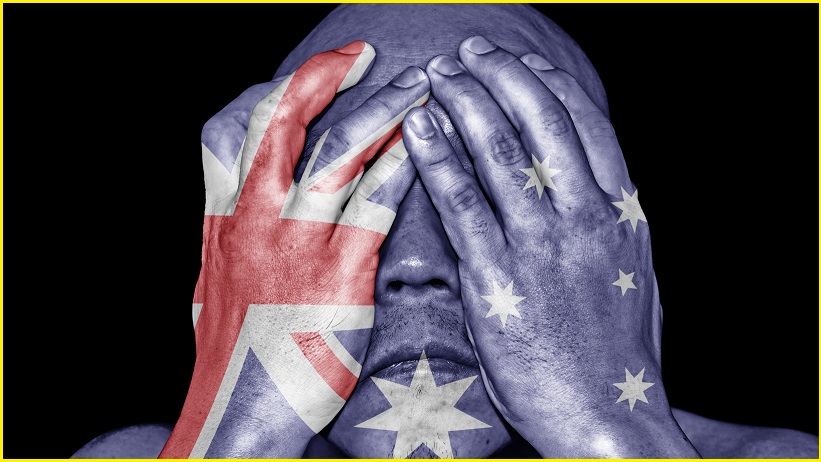Long accustomed to mediocre innovation maturity rankings and truly dismal global broadband rankings, Australia’s Internet industry would have welcomed news that a global digital quality of life (DQL) ranking called us a regional leader – until realising that the survey’s Oceania region had just one other country.
While Australia’s win over – you guessed it – New Zealand made it the highest-ranked of two countries in Oceania, on a global scale VPN provider Surfshark’s 2021 Digital Quality of Life Index was rather more humbling.
Australia’s DQL ranked 17th overall, based on 14 measurements evaluating Internet affordability, Internet quality, electronic infrastructure, electronic security, and electronic government – the five pillars, according to the survey, that reflect the success of economy-wide digital transformation.
The survey ranked 110 countries against those five pillars, giving Australia an overall score of 0.6835 that put it ahead of New Zealand (0.6492) and emerging countries like China (0.6529), Ireland (0.6459), Malaysia (0.6108) and Qatar (0.6050).
Australia was, however, well behind fellow first-world countries including top-ranked Denmark, South Korea, Finland, and Israel – and the security of our digital economy appears to be a key reason.
“Digital opportunities have proved to be more important than ever during the COVID-19 crisis, stressing the importance for every country to ensure fully remote operational capacities for their economies,” Surfshark CEO Vytautas Kaziukonis said in launching the new index.
Australia’s efforts around e-government were flagged as world-leading, with Australia cracking the top ten in that category as well as in Internet quality – with our mobile speeds improving by 90 per cent and broadband speed by 85 per cent.
Yet those strong points were blunted by slumping scores in e-infrastructure and Internet affordability – which declined by 49 per cent over the past year – as well as what Surfshark called “mediocre” e-security ratings that placed Australia 36th globally.
Weak spots in the digital economy
As a lever that can be directly influenced by government policies, security is a key indicator of Australia’s progress in building its digital economy – but it fared poorly in the Surfshark meta-analysis, which corroborates official indicators including National Cyber Security Index (NCSI) ratings and the status of their data protection laws.
Australia’s DQL score is well behind those of its allies in the controversial AUKUS partnership – the US ranked fifth and the UK, tenth – and those countries scored much higher on cybersecurity (ranked 16th and 18th, respectively) than Australia.
The low security rating – also reflected in the NCSI ranking of 30 – may well be an own-goal after years of controversy as the government passed intrusive new data-retention laws, introduced aggressive new digital search warrants, and ramrodded the damaging and costly ‘Encryption Act’ into law to facilitate an extraordinary global sting.
It was only two years ago that the US government was warning Australia about the Encryption Act’s impropriety – yet after the success of the An0m sting, the law may be a selling point for Australia given its value in helping foreign governments work around domestic privacy restrictions.
Yet security isn’t the only thing compromising Australia’s overall ranking: long an industry bugbear, Internet affordability seems to have been sacrificed after telcos got special dispensation to collaborate to keep our digital economy online early during the pandemic.
Removing competitive pressure may have started the ball rolling, with NBN Co working to improve its bottom line in preparation for an eventual privatisation in the face of attrition of fixed-line customers and competition from Telstra – which is doubling down on 5G to boost revenues and outpace the NBN.
The DQL’s results echo previous findings such as the IMD World Digital Competitive Ranking (WDCR), which last year flagged Australia’s biggest weaknesses as communications technology – in which Australia ranked 51 out of 63 countries – and business agility, in which Australia ranked 48th.
“Digital technologies have the potential to deliver very real economic opportunities and very real improvements to peoples’ quality of life,” Committee for Economic Development of Australia (CEDA) chief executive Melinda Cilento said at the time, “but the community needs to have confidence they are being advanced in its interest, and they enhance wellbeing.”
“Leading economies cover all bases, strengthening digital infrastructure, developing skills and talent, and providing effective regulation and policy settings.
“Doing well in some areas but falling behind in other areas of digital competitiveness won’t cut it.”










